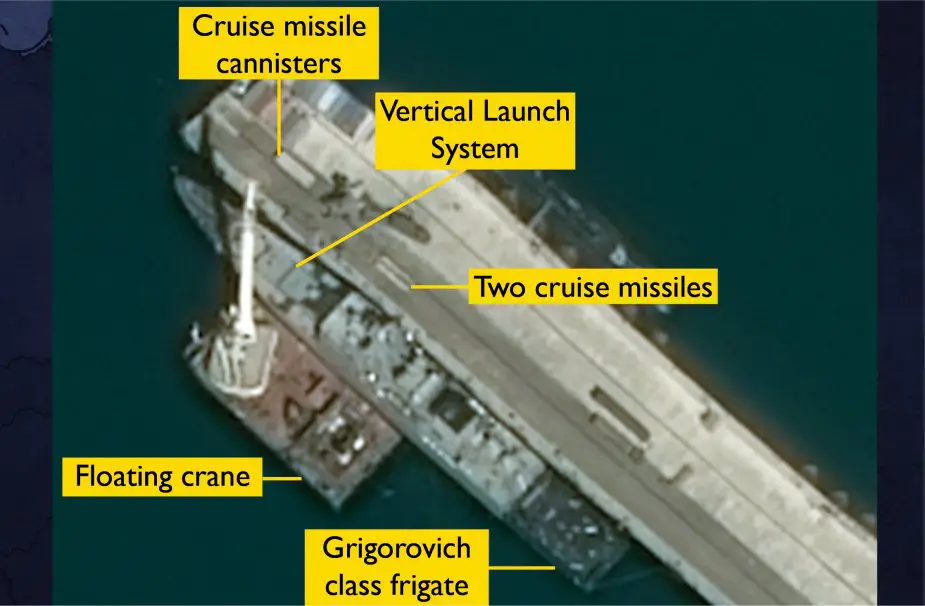According to information published by the UK MoD on April 18, 2024, the Black Sea Fleet (BSF) of Russia has begun consolidating its maritime operations at the Novorossiysk port, moving away from its traditional base in Sevastopol, Crimea.
Follow Navy Recognition on Google News at this link
 Satellite images of the port of Novorossiysk in the Krasnodar Krai, to the east of the Kerch Bridge. (Picture source: UK MoD)
Satellite images of the port of Novorossiysk in the Krasnodar Krai, to the east of the Kerch Bridge. (Picture source: UK MoD)
This move follows the decision made in March 2024 by the BSF commander to relocate ships and submarines in response to the ongoing war, marking one of the least active periods for the fleet.
On April 1, 2024, a Grigorovich class guided missile frigate conducted a weapons handling exercise at Novorossiysk. These missile systems, typically reloaded in Sevastopol, are crucial to Russia's maritime strategy and have been adapted to the new basing arrangements.
The relocation to Novorossiysk, according to military analysts, serves as a strategic move to avoid Ukrainian sea-borne attacks and suggests a long-term adjustment to the fleet's operational strategy.
The improvements in maintenance, logistics, and weapons handling infrastructure at Novorossiysk are reportedly designed to support the fleet's needs indefinitely, signifying a deepened military commitment to the region amidst the ongoing conflict.
Context
The Black Sea Fleet, based in Sevastopol, Crimea, has faced significant challenges during the ongoing conflict between Russia and Ukraine. Historically, this fleet has been a central element of Russia's naval power in the region, but recent developments have markedly diminished its operational effectiveness.
Since the start of the conflict, the fleet has been targeted repeatedly by Ukrainian forces. These attacks have included missile strikes on the fleet's headquarters in Sevastopol and on its flagship, the Moskva, which was sunk by a Ukrainian Neptune anti-ship missile. This event was a significant blow to Russian naval capabilities in the Black Sea.
The degradation of the Black Sea Fleet's capabilities has had wider strategic implications. It has hindered Russia's ability to project power along the Ukrainian coastline and support amphibious and logistical operations, particularly around areas like Odesa.
This weakening of Russian naval power has allowed Ukraine to maintain more control over its territorial waters and conduct maritime trade more securely, despite ongoing risks.
Overall, these developments signify a major shift in naval power dynamics in the Black Sea, showcasing how Ukraine has effectively used its limited resources to challenge a larger and better-equipped adversary.



